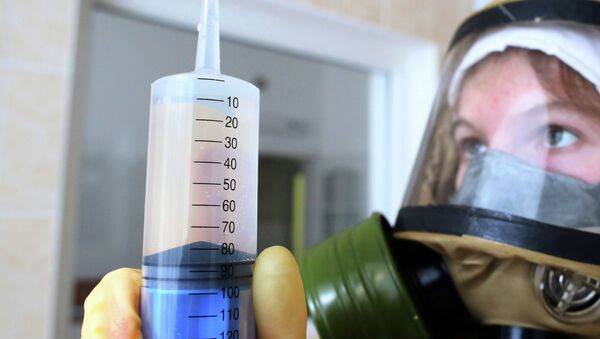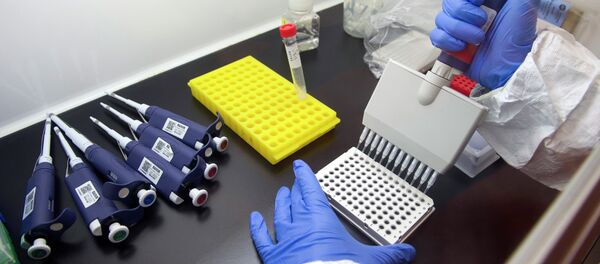This first rapid test for Ebola is a significant step against the epidemic that has killed approximately 10,000 people in West Africa.
"Yesterday WHO assessed and listed (the) first antigen rapid test kit as being eligible for procurement to Ebola affected countries,” WHO spokesman,” Tarik Jasarevic, said.
According to Jasarevic it was a real breakthrough due to the little time necessary to discover the test results. The test, developed by Corgenix Medical Corp, is less accurate than the standard PCR test but is easy to use, does not require electricity, and can give results in 15 minutes.
The operating principle is pretty simple and resembles a pregnancy test. It assumes putting a drop of blood on a paper strip, which determines a positive or negative result.
No details were provided by the WHO spokesman as to date and location of the introduction of the test. However, he reported that it would be used by a UN agency.
The test will help doctors check people for the virus in rural areas ravaged by the epidemic and at airports to test passengers before they board flights.
"The new test could help to quickly confirm outbreaks in remote areas without the need to send samples to a testing clinic and wait for results," Ben Neuman, a virologist at Britain's University of Reading told the Science Media Centre (SMC) in London.
According to Neuman, the test isn’t aimed at saving the lives of infected people, but it can make the process of detecting Ebola outbreaks much easier.
Currently, the only test available for Ebola is the polymerase chain reaction (PCR) test, but it is expensive and poor countries aren’t able to afford it. Moreover, it looks for telltale genetic signatures and takes up to 24 hours to receive results.
According to the WHO, 23,253 people have been infected with Ebola and 9,380 have died, the overwhelming majority of them in Guinea, Sierre Leone and Liberia.



